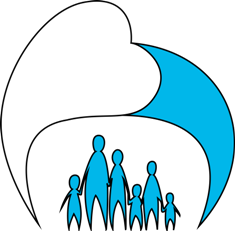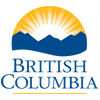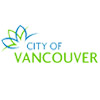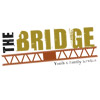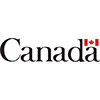March 19, 2020
COVID-19: How to isolate at home during the new coronavirus outbreak
Jackie DunhamCTVNews.ca Staff Writer
Published Thursday, March 12, 2020 9:35AM EDTLast Updated Tuesday, March 17, 2020 5:25PM EDT
Dr. Marla Shapiro breaks down when you should self-isolate.
TORONTO — As the novel coronavirus continues to rapidly spread, the government is advising Canadians to take social distancing measures to limit their contact with others in the community.
For those who are already showing symptoms and are suspected of having COVID-19, the Public Health Agency of Canada (PHAC) is directing them to isolate themselves at home and avoid contact with others.
For anyone who is not showing symptoms, but they have had a high risk of exposure to the virus, having been in close contact with someone who is ill for example, PHAC asks them to enter in to a “voluntary home quarantine,” also known as “self-isolation.”
- Coronavirus newsletter sign-up: Get The COVID-19 Brief sent to your inbox
- Read more: List of sports events affected by the coronavirus
While two weeks in isolation, which is the recommended period for COVID-19 cases, may seem like a relaxing break to some people, there are a number of considerations to keep in mind in order to successfully limit the spread of the disease.
Separation
Canadians who have been asked to isolate themselves or are doing so voluntarily have been asked to stay at home during the entirety of the quarantine period, unless it’s a medical emergency.
According to PHAC, that means they cannot go to school, work, public places, or use public transportation, such as buses and taxis.
It also means they can’t go down to the corner store to pick up a few groceries during their isolation. Instead, health agencies are advising people to arrange for someone to deliver groceries and other supplies to their door.
If they absolutely must come into contact with others, PHAC advises them to keep at least 2 metres away from them. They should also keep interactions brief and wear a mask. That means no lengthy visits.
As an extra precaution, anyone in isolation should take extra care to avoid older adults or those with compromised immune systems or chronic conditions.
For those living with families or roommates in the same home, it’s recommended they have a designated room for their exclusive use. If possible, they should also have their own bathroom.
If that’s not possible and they have to share common areas, such as the bathroom or kitchen, health agencies are advising them to use the area last and to thoroughly clean all surfaces after they’re finished.
Hygiene
Anyone who is in isolation or who is living with someone in isolation should remember to wash their hands with soap and water frequently and for at least 20 seconds at a time. They should use an alcohol-based hand sanitizer if soap and water aren’t available.
They should dry their hands with disposable paper towels or a dry reusable towel, which should be replaced when it becomes wet, PHAC advised.
The healthy agency also recommended people should avoid touching their eyes, nose, and mouth. If they have to cough or sneeze, they should do so into the bend of the arm or into a tissue.
Household items and surfaces
Because the new coronavirus can linger on surfaces for a few hours after contact, healthy agencies are recommending thorough and frequent cleaning of common household items and surfaces.
PHAC advises people to disinfect surfaces that are often touched, such as toilets, bedside tables, doorknobs, phones, and television remotes, at least once a day.
Personal items such as toothbrushes, towels, bed linen, utensils, or electronic devices should also not be shared.
To clean these surfaces, PHAC said people should use a regular household disinfectant or diluted bleach, consisting of one part bleach and nine parts water.
As for laundry, Public Health Ontario said there is no need for people living in the same home as someone in isolation to separate their laundry, but they should wear gloves when handling the clothes.
They should also wash their hands with soap and water immediately after removing their gloves.
When disposing of garbage, Public Health Ontario advises using regular garbage bins, but people should take care not to touch used tissues with their bare hands. They should also line wastebasket with plastic bags to make waste disposal easier and more sanitary.
Pets
For people with pets at home, PHAC said there are still a lot of unknowns concerning animal-to-human infection.
As a precaution, the health agency said people should avoid close contact with their pets, which includes snuggling or kissing them. They should also not allow their pets to lick them, sit on their laps, or sleep in their beds.
They should also avoid coughing and sneezing on their animals. If possible, people should have someone else care for their pet while they’re in isolation.
Supplies to have at home
PHAC has a list of necessary supplies to have on hand during at-home isolation. The list includes:
- Surgical/procedure masks (do not re-use)
- Eye protection
- Disposable gloves (do not re-use)
- Disposable paper towels
- Tissues
- Waste container with plastic liner
- Thermometer
- Running water
- Hand soap
- Alcohol-based sanitizer containing at least 60 per cent alcohol
- Dish soap
- Regular laundry soap
- Regular household cleaning products
- Bleach (5 per cent sodium hypochlorite) and a separate container for dilution (1 part bleach to 9 parts water)
- Alcohol prep wipes
